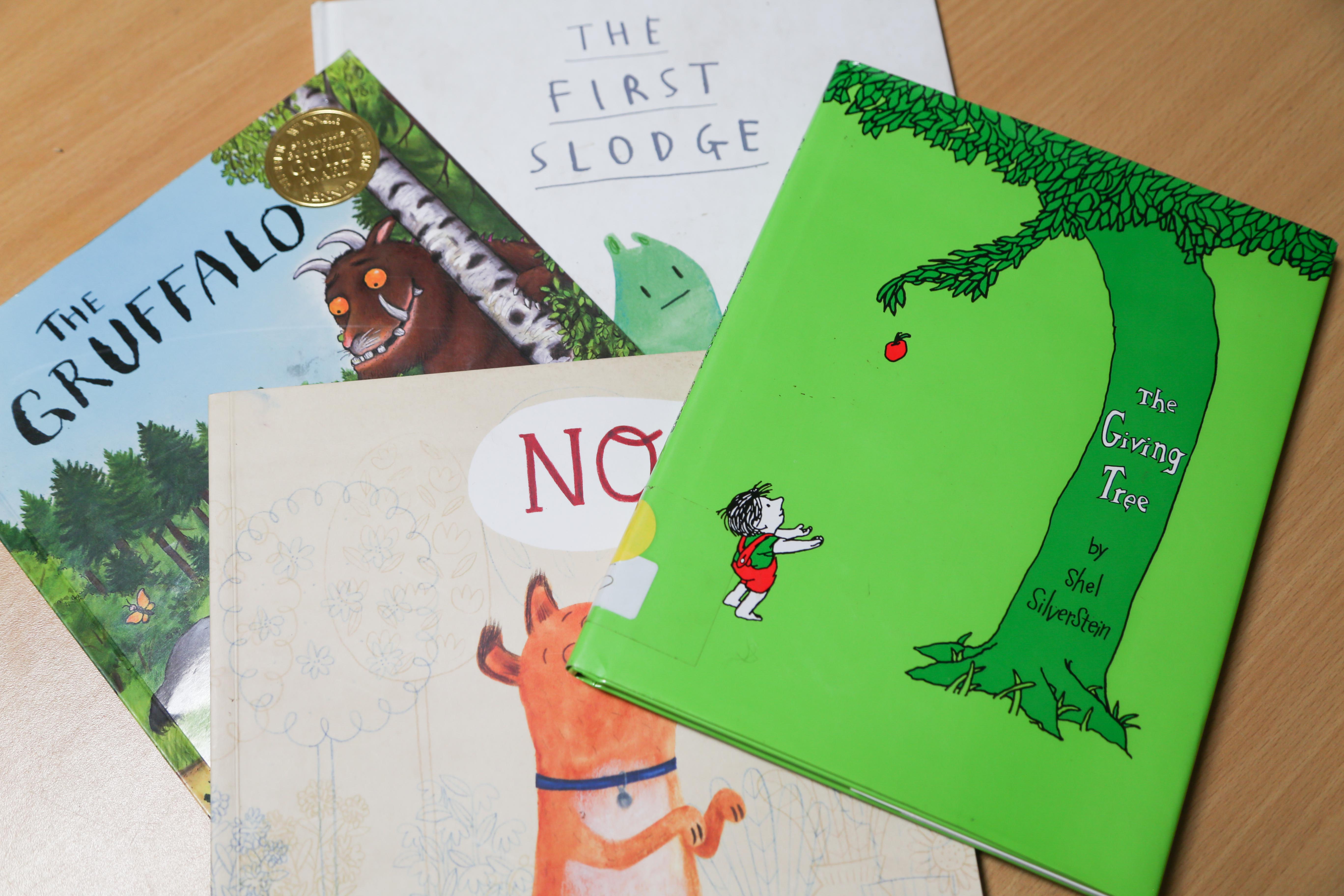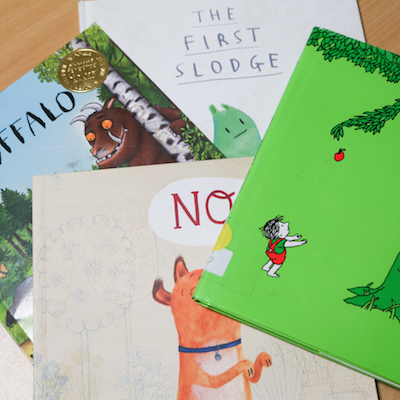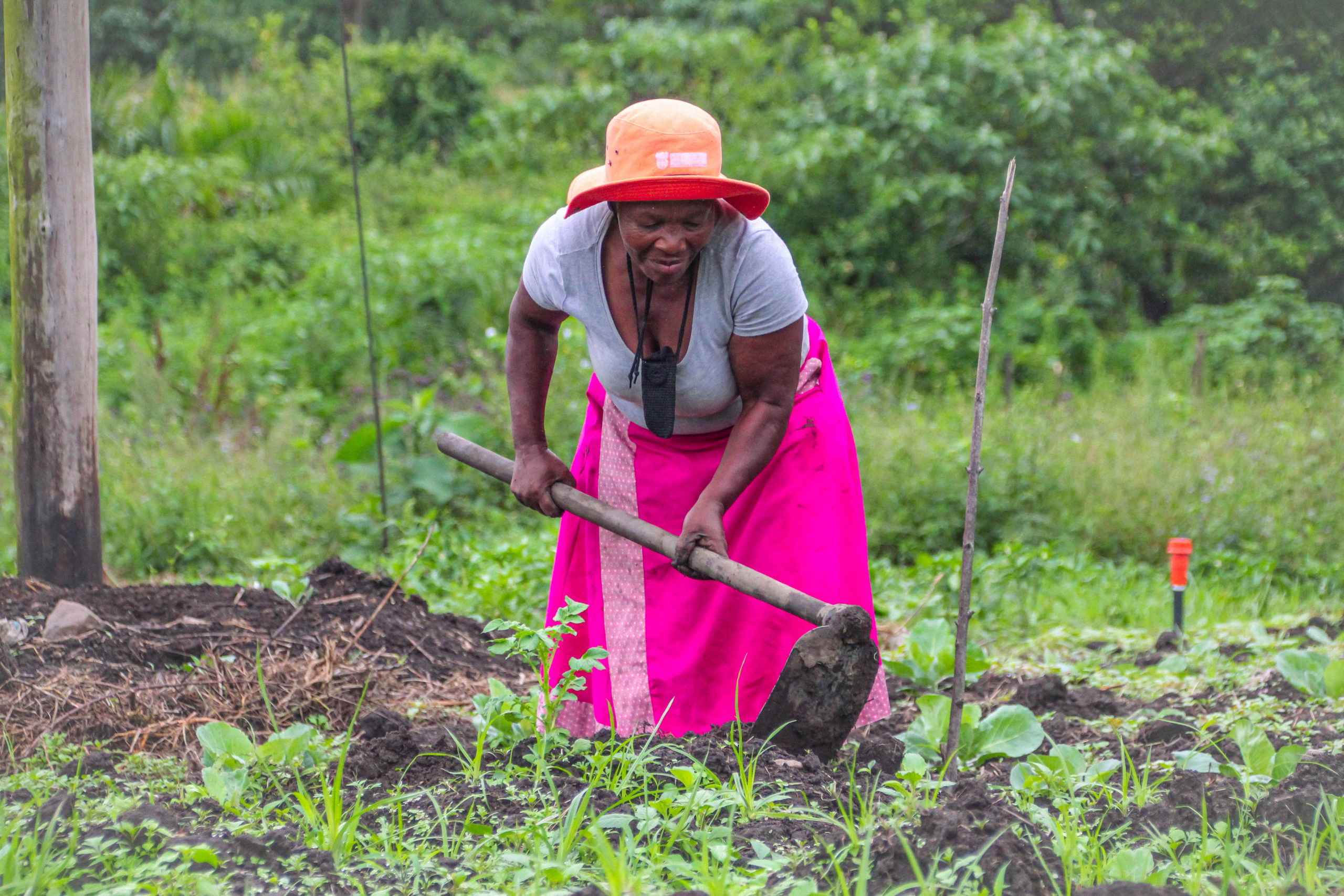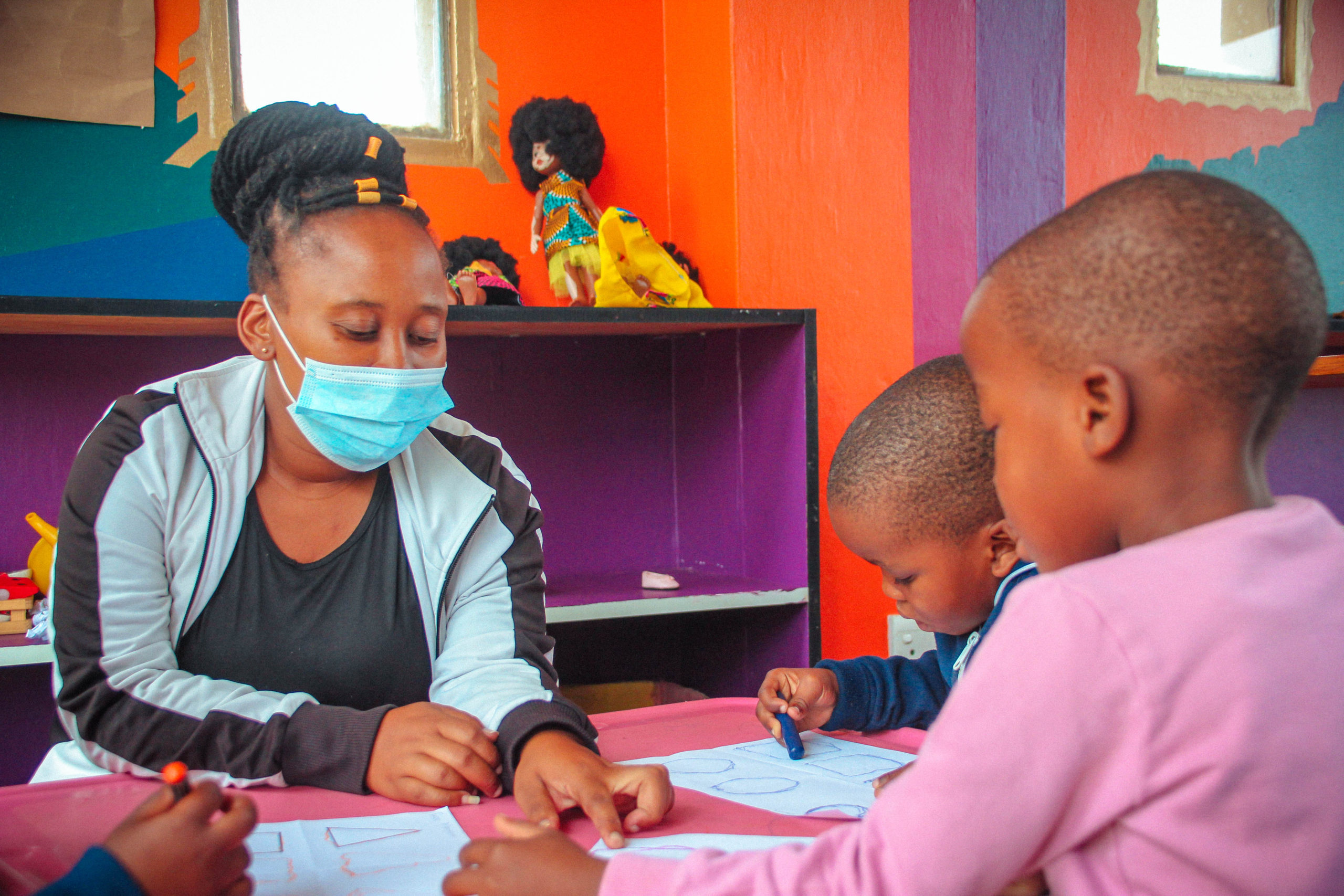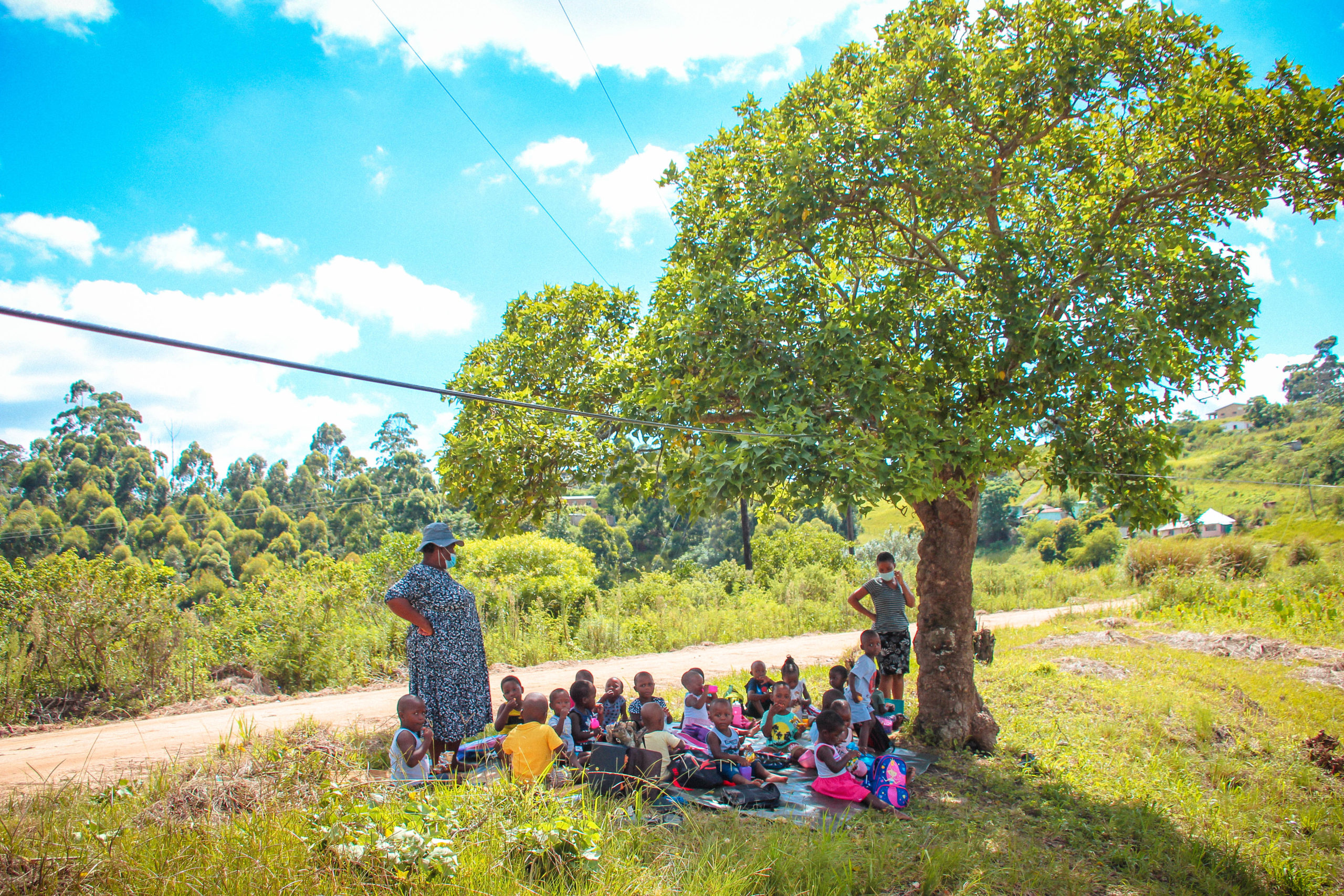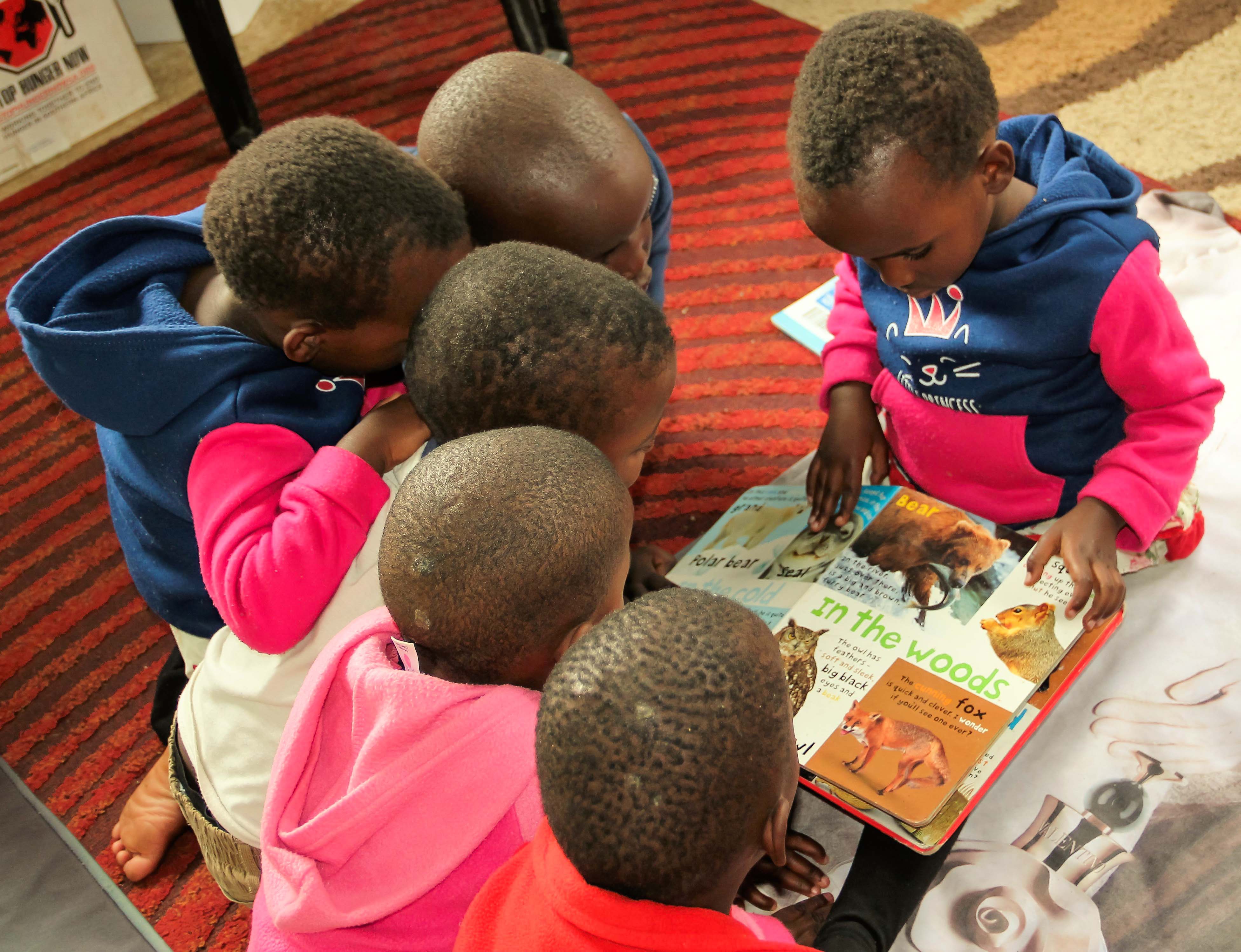
The books in our library are well-loved. They have been read numerous times, which is seen by the number of books borrowed from the library. In 2015, 3847 books were borrowed and in 2016, 6715 – it almost doubled in one year! As the only library in the municipality, children and adults alike gather at Thanda for reading; each of their minds embracing a newfound book. In their story they may be discovering a new place, a different culture, an opposing perspective, an unexpected emotion, or an imaginative thought. Literature, especially picture books, is one of the most important pillars of our Creative Learning Curriculum and core philosophies at Thanda. We believe it creates a bridge between the subjects we explore in art, science, geography, environmental care and others. Some of our biggest inspirations for the activities and lessons we teach are found in children’s books such as Spider-Man, The Giving Tree, or The Gruffalo, to name a few. The same books that we use with the little kids are used to help Thanda staff discuss big ideas and explore their own minds. Empathy, creativity, confidence, rebelliousness and critical thinking are all explored in children’s books – regardless of one’s age or learning level.
Dr. Seuss’, The Lorax, covers a multitude of valuable lessons. The Lorax stands up for the environment and the creatures of the forest against the greed of economic advancement in place of caring for the environment. The quote, “Unless someone like you cares a whole awful lot, nothing is going to get better. It’s not,” gives an accurate picture of the state of our environment and natural resources and puts the power in our hands as citizens. It makes a clear statement that the older generation dropped the ball and now it is our responsibility to do something about it. In our lessons, students connect to the story by making Lorax mustaches and standing in front of the class to ‘Speak for the trees’ like the Lorax does, where they also learn public speaking skills. Children’s books offer characters that are easy to empathise with because they are not ambiguous and they do not create complexities in reading. In the Lorax we feel sorry for the creatures of the forest and the truffula trees because they have lost their homes and we begin to think of such habitats in our own communities that have been destroyed by human greed.
In our physical environment books are a connection to the outside world. We learn how diverse the world is and that some people live vastly different lives from our own, but also that some are very similar. Confidence and self-esteem come from knowing where you fit in the bigger world. For example, Spider-Man, a prominent character and theme at Thanda, helps the imagination expand with new ideas about science, invented characters, and far-away places. Spider-Man’s “With great power comes great responsibility” is an important lesson that when we have the ability to do something we must do it for the good of others. Children’s books take complex philosophies, combined with illustrations, and make them easy to grasp and discuss.
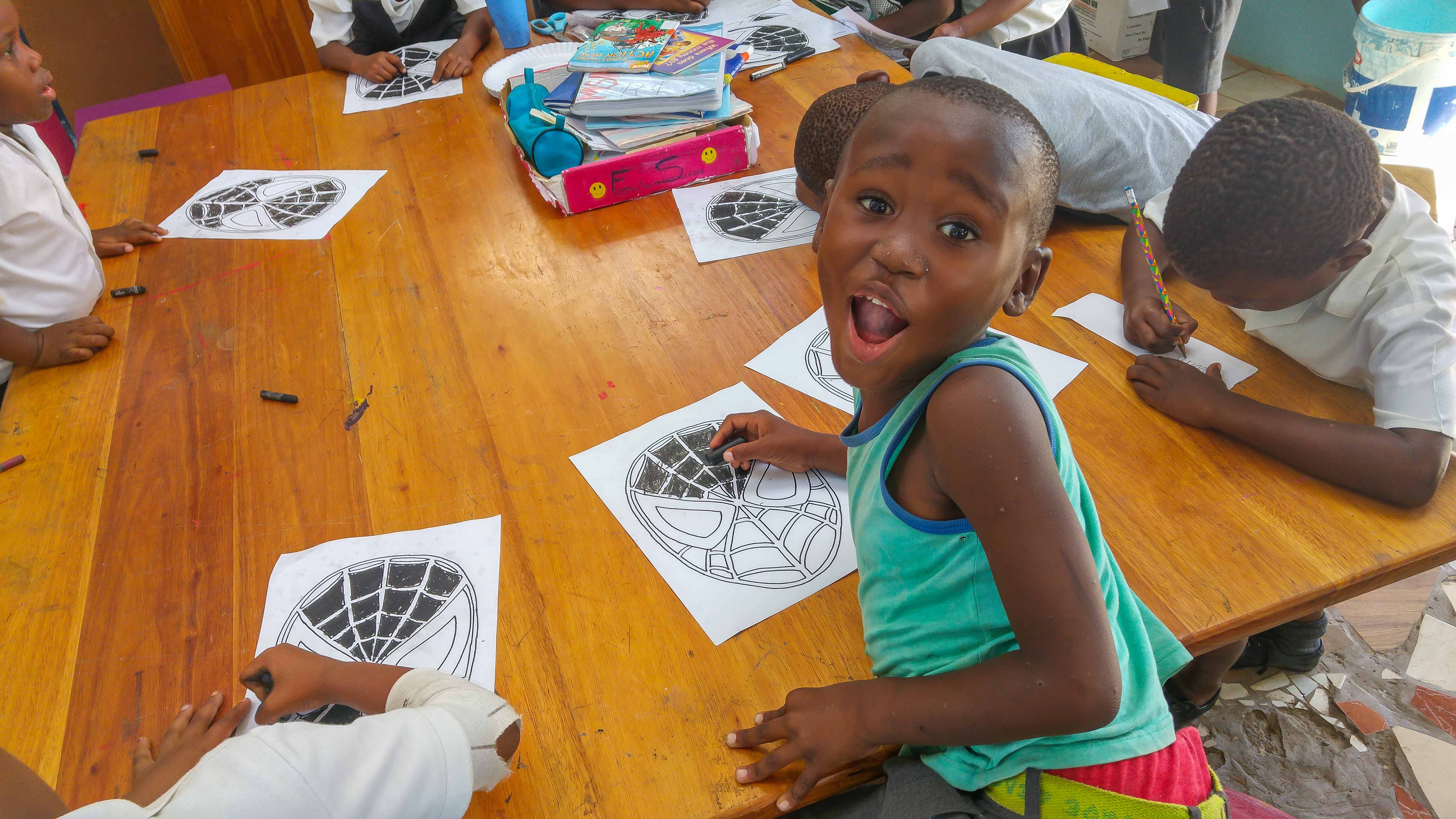
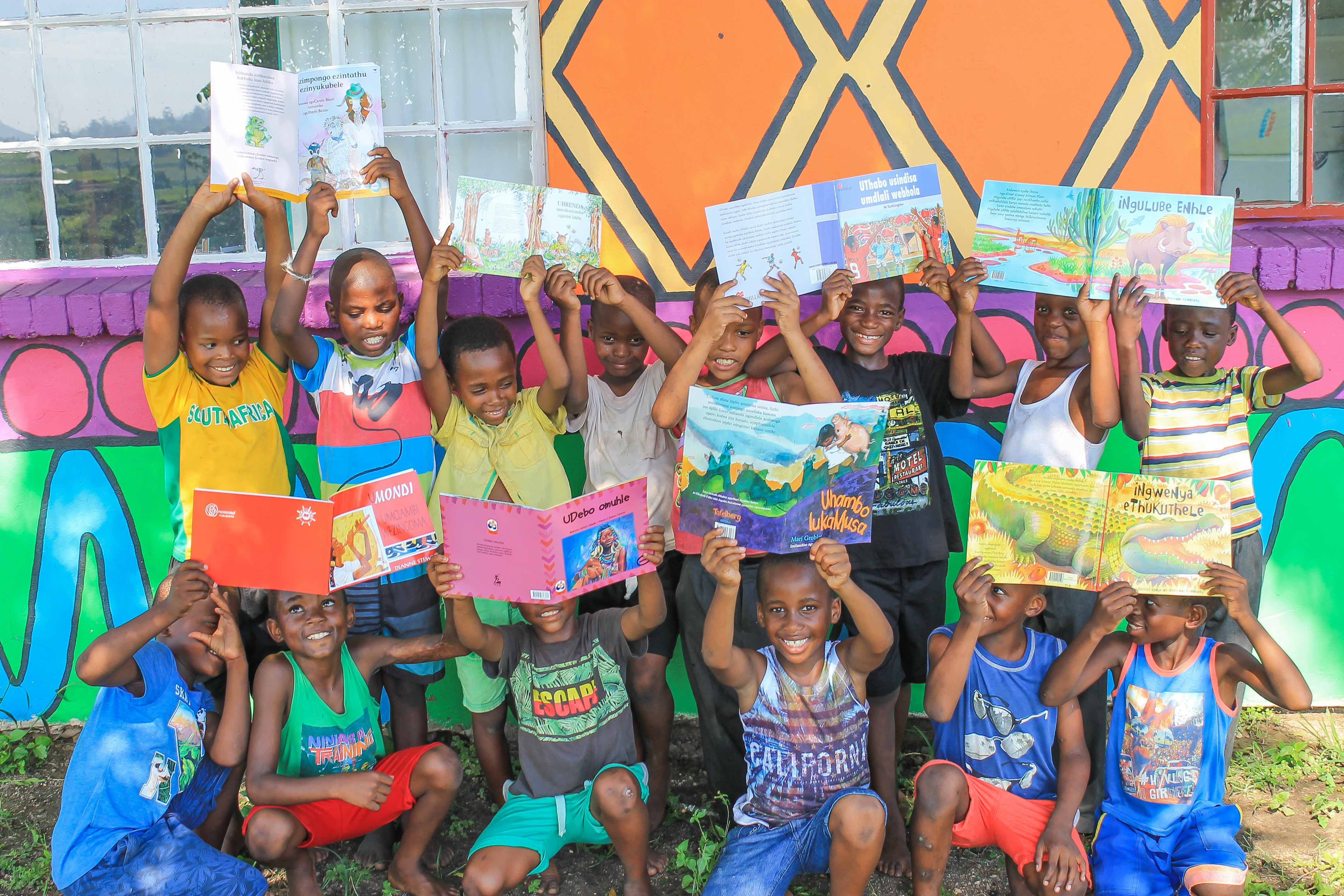
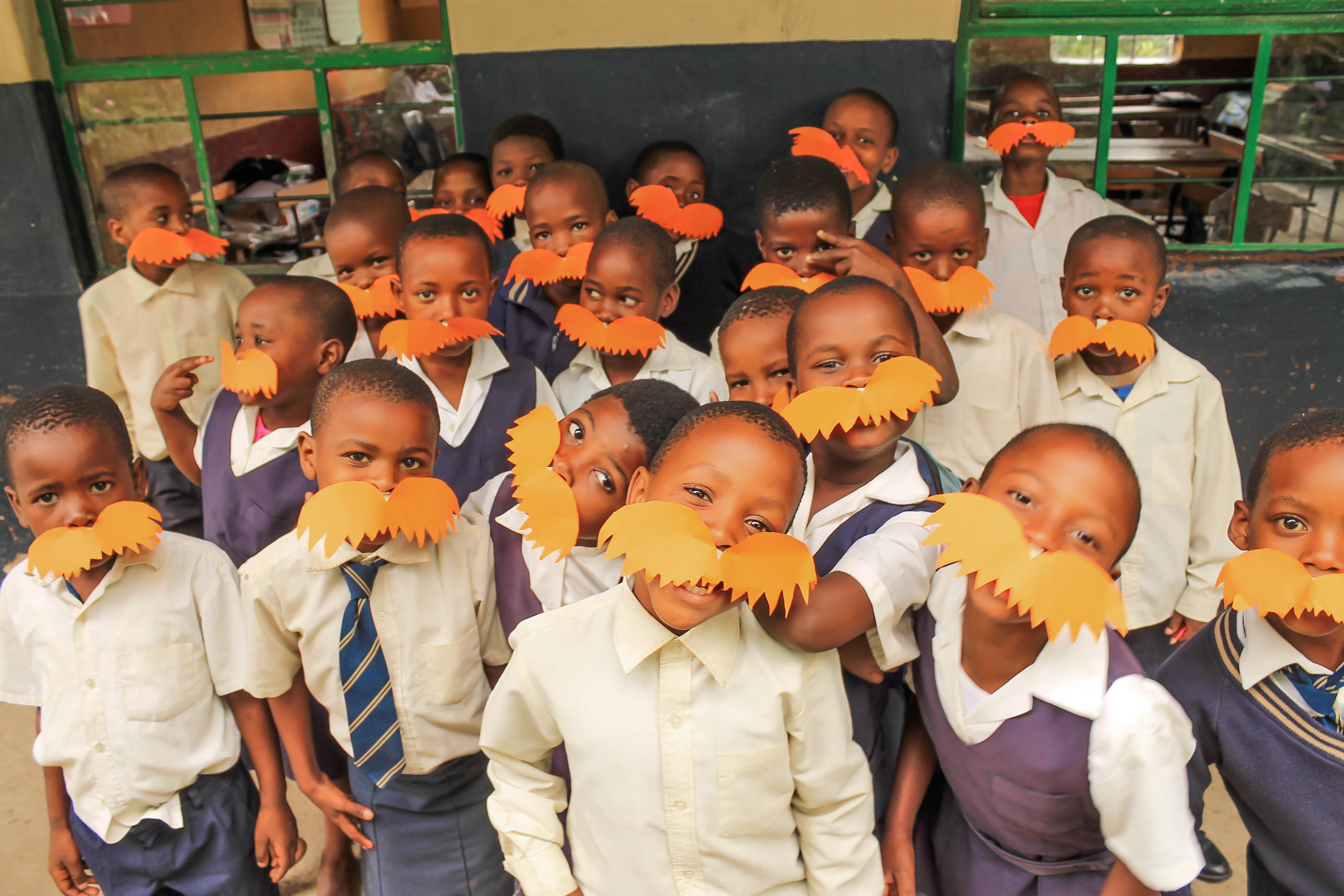
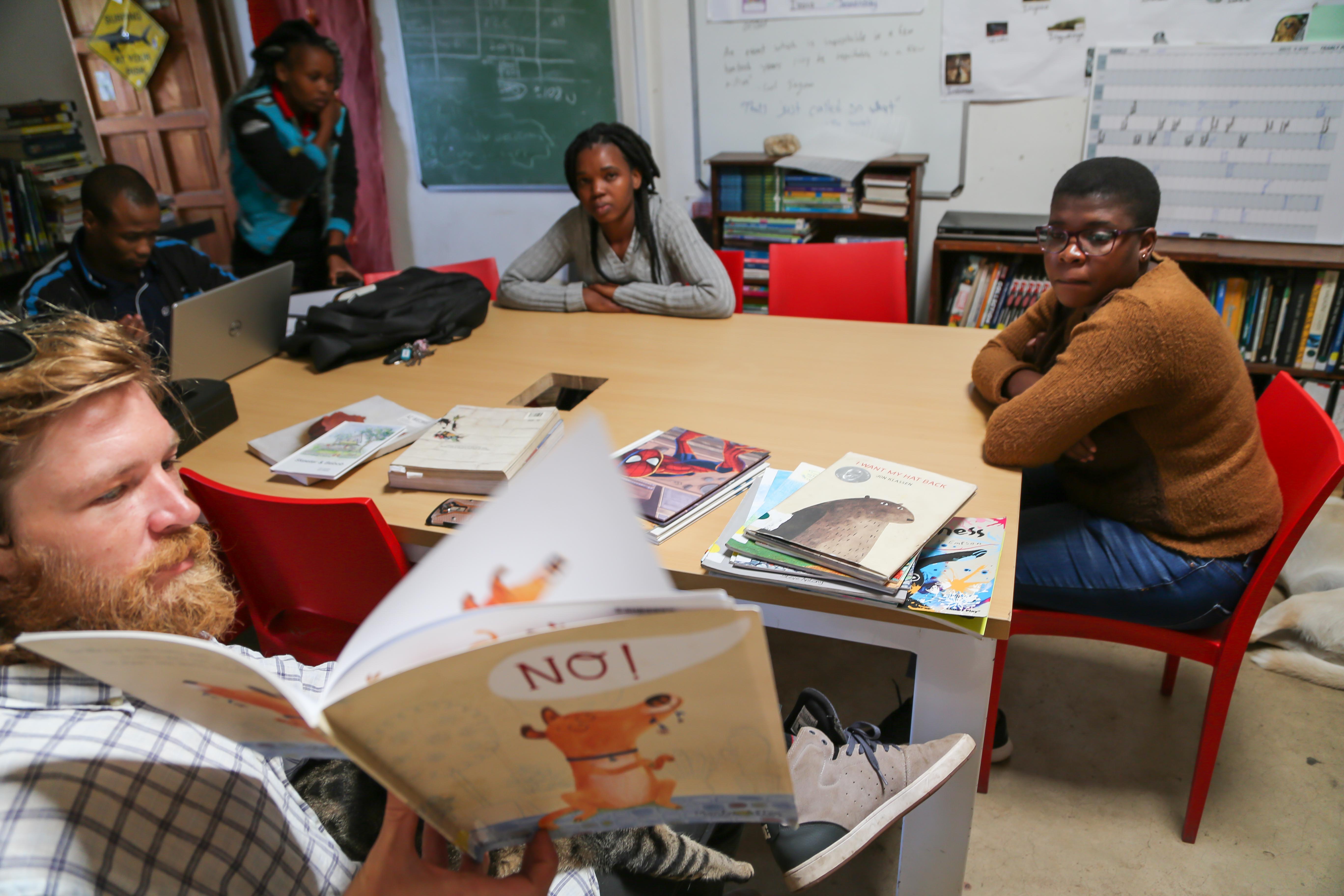
Tyler Howard, the Education Director and one of Thanda’s Co-Founders, describes his personal connection to children’s books in a way that developed out of discontent with his own relationship to reading and the education system. “When I applied to University they always cautioned us not to mention Dr. Seuss in our entrance essay because it was believed it made us seem young and less educated. This always stuck with me and seemed crazy because even though I studied literature at University, I had never read anything with more depth than The Lorax. And the Lorax found that depth in less words and in a much less painful way. It’s a combination of the illustrations and the words. We use literature as not just literature, but a connection point to art, philosophy and so many other things.”
This World Book Day we encourage you to pick up one of your favorite children’s books and look at it with a new perspective, discuss it with friends or family, and read it to others, always remembering the valuable lessons we find in children’s books! World Book Day is celebrated internationally on April 23rd by over 100 different countries. However, in the UK it was celebrated on March 2nd. In South Africa, national celebrations are coordinated by the Centre for the Book, an Outreach Unit of the National Library of South Africa, to promote a culture of reading, writing and publishing in all local languages and easy access to books for all!
